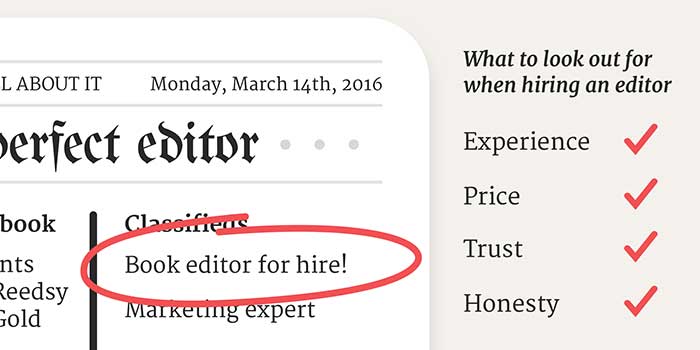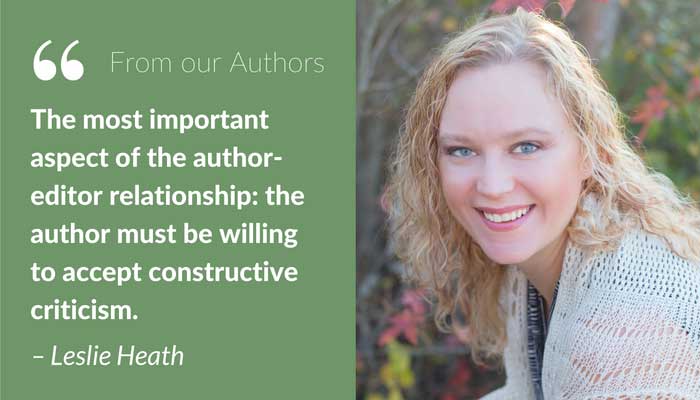Editorial assessment
An editorial assessment is an extremely valuable first overview of your manuscript by a professional editor. Your editor will read through the entire manuscript and provide thoughtful, in-depth feedback concerning elements such as plot, characterization, structure, consistency and style. Feedback from an editorial assessment can lead to significant changes to your manuscript. The assessment will identify your book’s strengths and weaknesses, and help you devise a revision strategy that dramatically improves the execution of your idea.
But where can you find a professional editor with the right experience in your genre to correctly assess your manuscript?
Look no further, here are the professionals who can help
Holly K.
Tactful. Thorough. Quick. I have a meticulous eye in copyediting, proofreading, and formatting and love working in fiction. Plus, I'm nice!
view profileLouise W.
I'm an author and editor, specialising in literary fiction, women's fiction, psychological thrillers, and urban fantasy.
view profileDaniel P.
Former New Yorker editorial staff, interested in literary fiction and nonfiction. Bylines in The New Yorker, The Paris Review, GQ, and FT.
view profileJanet G.
Storytelling is my passion. A longtime editor and award-winning writer, I help authors connect, compel and entertain. (Authors 18+ only.)
view profileSirah J.
Careful inspections, thorough explanations, and considerate guidance for inclusive picture books and middle grade novels.
view profileWhen should I seek an editorial assessment?
An editorial assessment can be useful at several stages in the writing process. Some writers may seek this deep-level feedback once the first draft is completed. Others might solicit an assessment after the manuscript has been through several rounds of beta reading or even professional editing; an assessment provides the kind of careful reading that leads to better theming, nuance, characterization and structure.
A manuscript assessment can even be valuable if you have already self-published a book. With the ease of re-publishing new editions of ebooks, authors are able to remove a book that isn’t selling well or is being badly received. An editorial assessment can address specific areas where you’ve received critical feedback. But unlike the average Amazon review, an assessment won’t just point out what’s not working; it will help you devise exactly how to fix it. This advice is especially useful because it is specific and objective: it provides you with feedback that casual readers cannot provide.
An editorial assessment can also help you determine if your work is ready for query. The assessment, especially when paired with a query letter review, can help bring needed polish to your querying package before you start contacting agents.
Why an editorial assessment if I can get a full content edit directly?
Some manuscripts aren’t ready for the line-level involvement of developmental editing. If big pieces of your manuscript are apt to change — if there are major plot points that need to be addressed, or if there are a few darlings to kill off — a manuscript assessment is a better choice (and usually a cheaper one).
Following a structured editorial process, starting with an edit letter can also save you time and money for when you move on to developmental editing and proofreading. If you ask an editor to spend time on a full content edit of a manuscript that hasn’t yet had an editorial assessment, much more time will need to be spent on structural changes that could have been sorted out at an earlier stage. With an edit letter, you’ll see how a professional editor views your book against other comparable titles in your genre, learn how to avoid cliched plot development, and make your characters believable, three-dimensional and authentic.
Seek an editorial assessment ahead of other editing if you want to understand the structural strengths and weaknesses in your manuscript. If you address those, working with an editor on a developmental edit or copy edit afterwards should be much cheaper.




